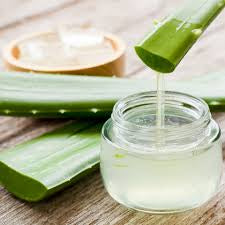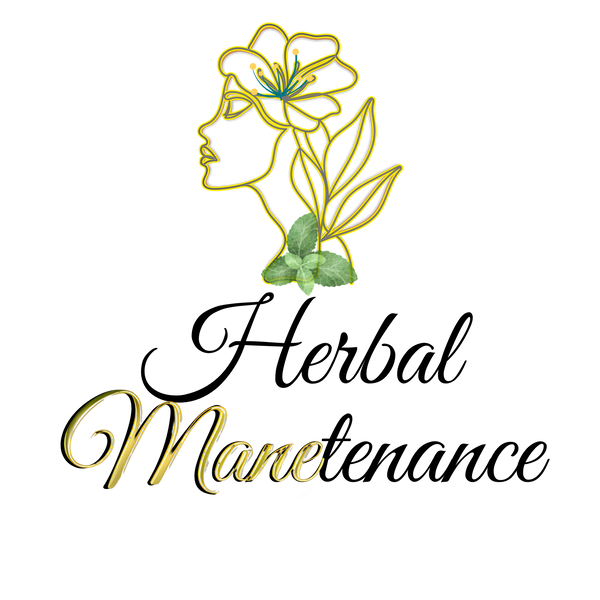Herbal Manetenance Ingredients
Aloe Vera
Aloe Vera
Aloe barbadensis Miller
Composition
Composition
Aloe Vera primarily consists of water, with the remaining portion containing a complex mix of compounds like polysaccharides, vitamins, enzymes, minerals, and amino acids.The gel itself is about 98.5% to 99.5% water, with the solid components including various bioactive substances.These solids includeacemannan,a key polysaccharide, and other compounds likeanthraquinones,saponins,andphytosterols.
- Water:Aloe vera is primarily water, accounting for a large portion of its weight.
- Polysaccharides:These are complex carbohydrates that play a crucial role in aloe vera's properties. Acemannan, a type of polysaccharide, is known for its potential benefits.
- Vitamins:Aloe vera contains vitamins like A (beta-carotene), C, and E, which are known for their antioxidantproperties.
- Enzymes:Several enzymes are present, including alkaline phosphatase, amylase, and bradykinase, which may contribute to various biological activities.
- Minerals:Aloe vera contains a variety of minerals, including calcium, potassium, magnesium, and sodium, among others.
- Amino Acids:The gel contains 20 amino acids, including 7 of the 8 essential amino acids for humans.
- Other Compounds:Other compounds include lignins, saponins, phytosterols, and anthraquinones, which may contribute to aloe vera's medicinal and other properties.
Origins
Origins
Native to the Arabian Peninsula, specifically the Hajar Mountains in northeastern Oman and eastern United Arab Emirates.It is a succulent plant that thrives in hot, dry climates.The name "aloe vera" comes from the Arabic word "alloeh," meaning "shining bitter substance," and the Latin word "vera," meaning "true."
Did you know?
Did you know?
Share

Collapsible content
HAIR BENEFITS
Aloe vera offers several benefits for hair, includingpromoting growth, reduc ing dandruff, moisturizing, and protecting against damage.It can also help relieve scalp itching and inflammation.Here's a more detailed look at the benefits:
- Promotes Hair Growth:Aloe vera may stimulate hair growth by increasing blood circulation to the scalp and providing essential nutrients. According to Verywell Health, it can also help reduce oxidative stress on hair follicles i, which can contribute to hair loss.
- Reduces Dandruff:Aloe vera's anti-fungal properties can help alleviate dandruff and scalp irritation. It can also help balance the pH of the scalp, which is important for healthy hair.
- Moisturizes and Hydrates:Aloe vera's moisturizing properties can help to keep hair hydrated and healthy. It can also help to seal in moisture and prevent hair from drying out, making it softer and more manageable.
- Protects Against Damage:Aloe vera may protect hair from damage caused by UV rays, chemicals, and other environmental factors. Its anti-inflammatory properties can also help soothe and heal scalp irritations.
SCALP / SKIN BENEFITS
Aloe vera can benefit both the scalp and skin due to itsanti-inflammatory, hydrating, and soothing properties.It can help soothe an itchy, irritated scalp, reduce inflammation from conditions like seborrheic dermatitis and eczema, and even promote healthier hair growth.Additionally, aloe vera can be used to treat skin conditions like wounds, burns, and acne.Benefits for Scalp:
- Reduces inflammation and itchiness:Aloe vera's anti-inflammatory properties can help calm an irritated scalp and alleviate itching.
- Treats seborrheic dermatitis and other scalp conditions:It can help manage conditions like seborrheic dermatitis, which causes dandruff and inflammation, by soothing and reducing inflammation.
- Promotes healthy hair growth:By addressing scalp inflammation and irritation, aloe vera can create a healthier environment for hair follicles to thrive.
- Hydrates the scalp:Aloe vera's hydrating properties can help moisturize the scalp, preventing dryness and flakiness.
- Removes dead skin cells:The enzymes in aloe vera can help exfoliate and remove dead skin cells, contributing to a healthier scalp and reducing dandruff.
Benefits for Skin:
- Treats wounds and burns:Aloe vera is known for its healing properties and can help soothe and heal minor wounds and burns.
- Reduces inflammation:Its anti-inflammatory properties can help reduce redness and inflammation associated with various skin conditions.
- Treats eczema and psoriasis:Aloe vera can help alleviate symptoms of eczema and psoriasis, such as dry, itchy skin and inflammation.
- Treats acne:Its anti-inflammatory properties can help soothe and treat inflammatory acne.
- Hydrates the skin:Aloe vera's hydrating properties can help moisturize the skin and prevent dryness

